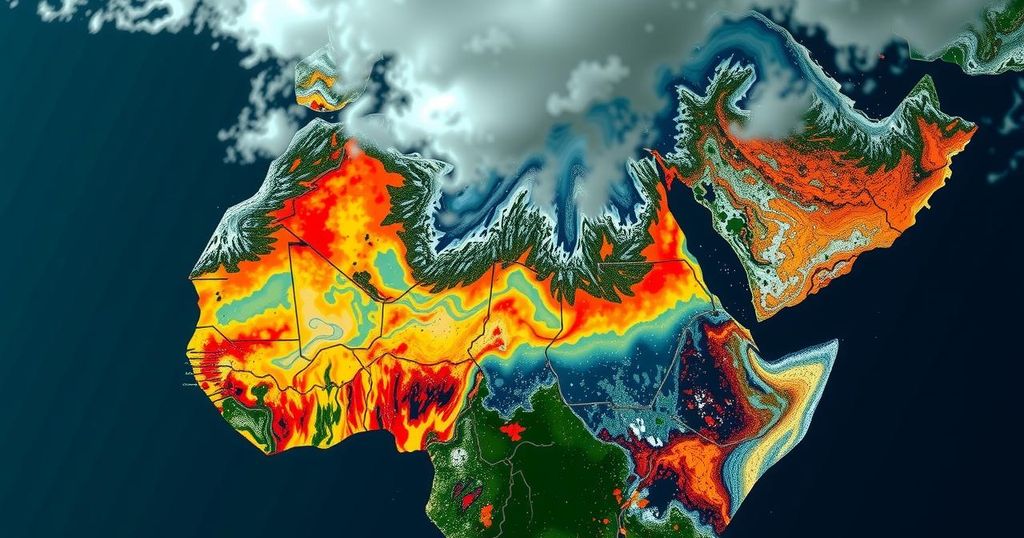International scientists have concluded that recent severe flooding in several African nations was worsened by human-caused climate change, increasing rainfall intensity by 5-20% in affected areas. The floods have led to approximately 1,500 deaths and displaced over 1 million people. Projections indicate that if global warming continues, extreme rainfall could occur nearly every year, underscoring the need for enhanced adaptation strategies and international financial support.
Recent reports from a collective of international scientists have indicated that the devastating rains which resulted in catastrophic floods across Cameroon, Chad, Niger, Nigeria, and Sudan were exacerbated by anthropogenic climate change. According to the World Weather Attribution (WWA), a collaborative research group that examines the correlation between climate dynamics and extreme weather phenomena, it is estimated that global warming has intensified this year’s seasonal downpours by approximately 5 to 20% in the Niger and Lake Chad regions. Furthermore, there is a concerning projection that, should current warming trends persist, similar extreme rain events could become an annual occurrence in these areas. Izidine Pinto, a researcher affiliated with the Royal Netherlands Meteorological Institute, stated, “Spells of heavy summer rainfall have become the new normal in Sudan, Nigeria, Niger, Cameroon and Chad.” The repercussions of this increased rainfall have been dire; the recent flooding has resulted in approximately 1,500 fatalities and displaced over 1 million individuals across West and Central Africa, as reported by the U.N. aid agency OCHA. The torrential rains have also led to the failure of dams in Nigeria and Sudan. The WWA has warned that if global temperatures rise by 2 degrees Celsius (3.6 degrees Fahrenheit), a threshold anticipated to be reached as early as the 2050s, such intense precipitation will be expected almost annually in the impacted regions. The organization advocates for greater investments in early warning systems and enhancements to dam infrastructure to mitigate these dangers. Joyce Kimutai, a researcher at the Centre for Environmental Policy at Imperial College London, highlighted the disproportionate impact of climate change on Africa, stating, “Africa has contributed a tiny amount of carbon emissions globally, but is being hit the hardest by extreme weather.” She emphasized the crucial role of the upcoming COP29 climate negotiations in November, urging affluent nations to offer “meaningful finance” to support adaptive measures for the continent.
The relationship between climate change and extreme weather events has raised significant concerns globally. Recent studies indicate that climate change is increasing the frequency and severity of various weather events, particularly in vulnerable regions. Africa, which contributes minimally to global carbon emissions, faces some of the harshest impacts from climate disturbances. The necessity for international cooperation and financial support in addressing the consequences of climate change, particularly through forums like COP29, is crucial for the affected nations, which are increasingly experiencing severe weather events attributed to changing climatic conditions.
In summary, the recent floods in several African nations have been intensified by human-induced climate change, leading to significant loss of life and displacement. Projections suggest that with continued global warming, such extreme weather events could become commonplace. The urgency of addressing these issues through investments in mitigation strategies and international support frameworks is paramount as these nations bear the brunt of climate repercussions despite their negligible contributions to global emissions.
Original Source: www.usnews.com






